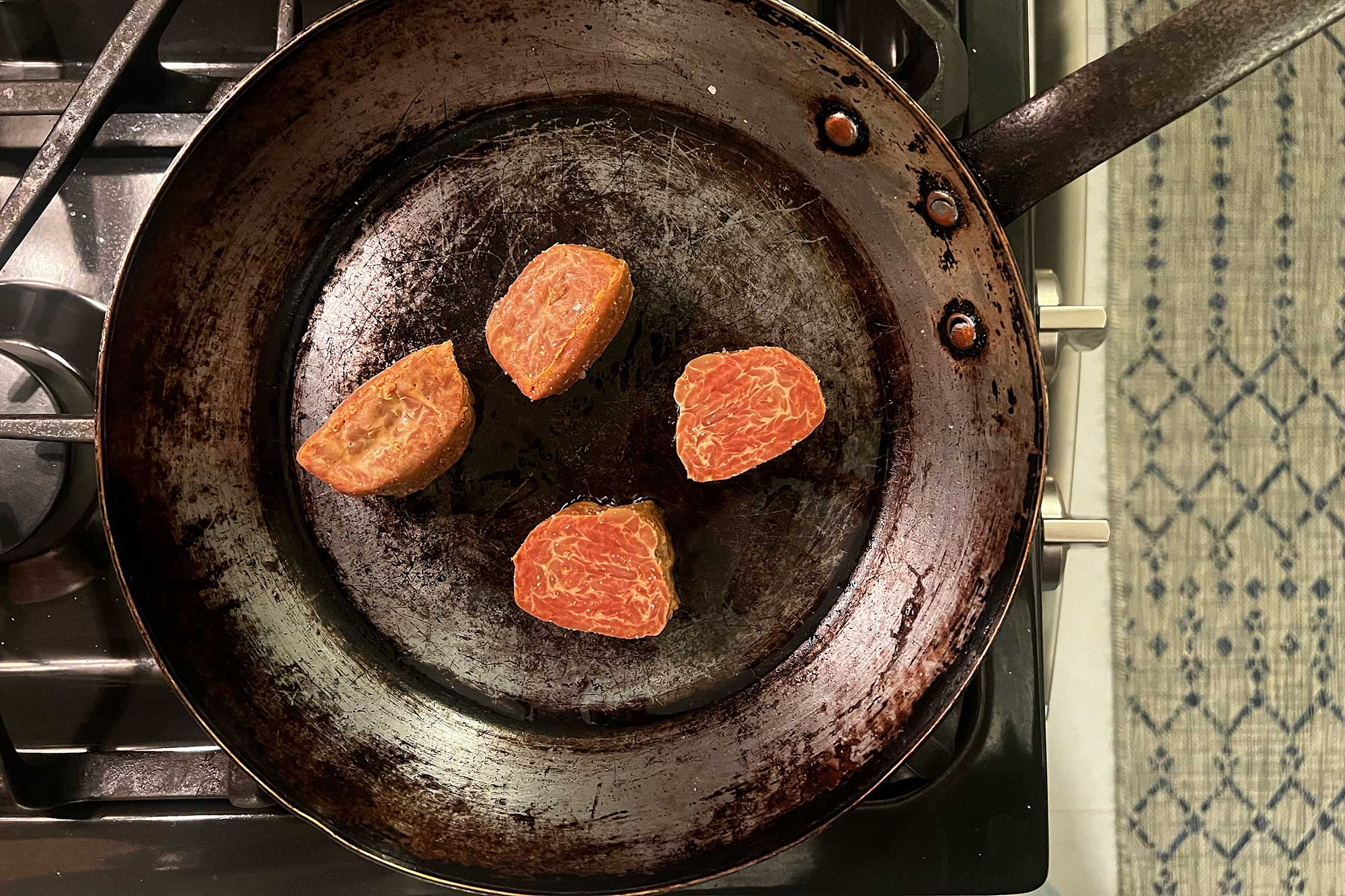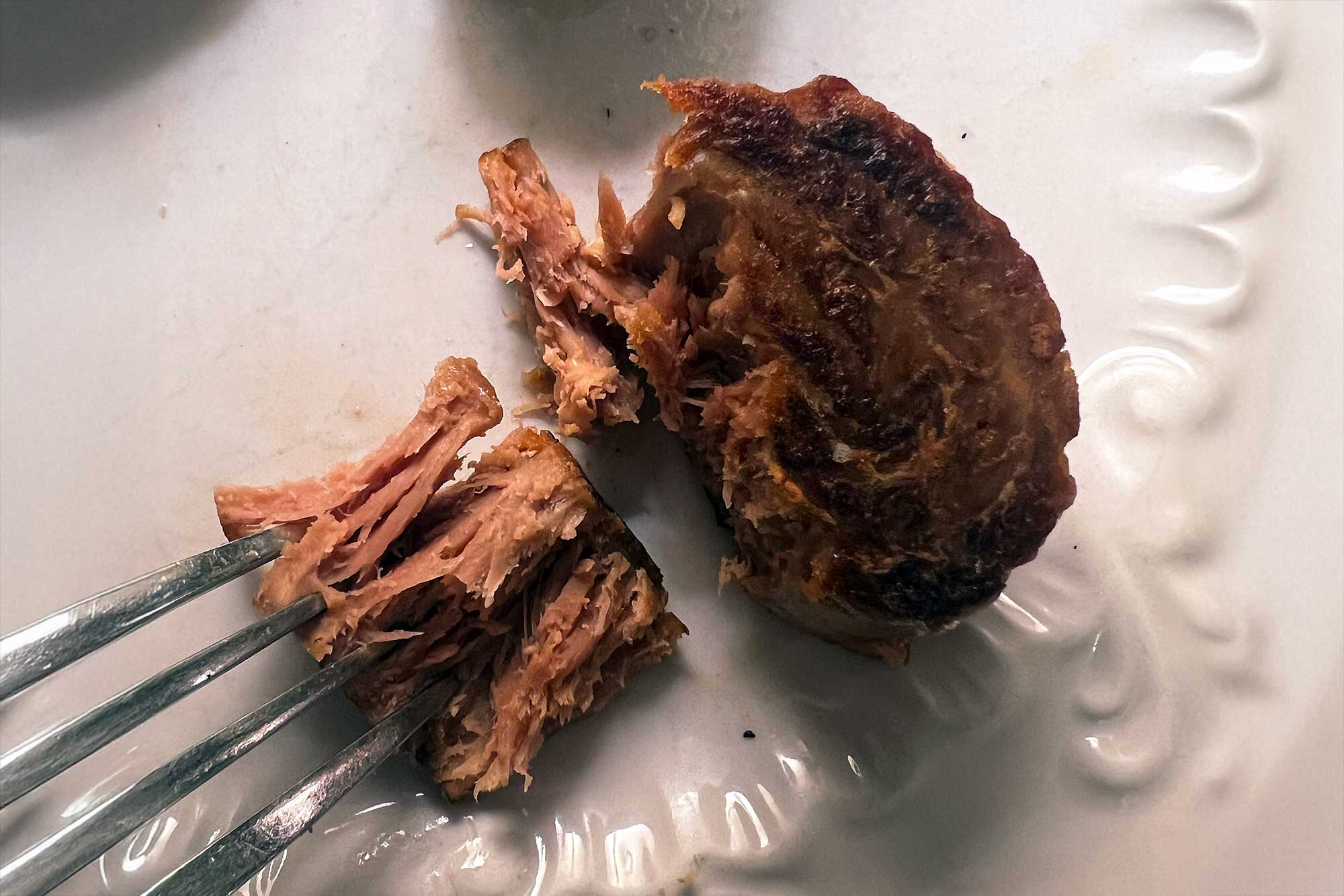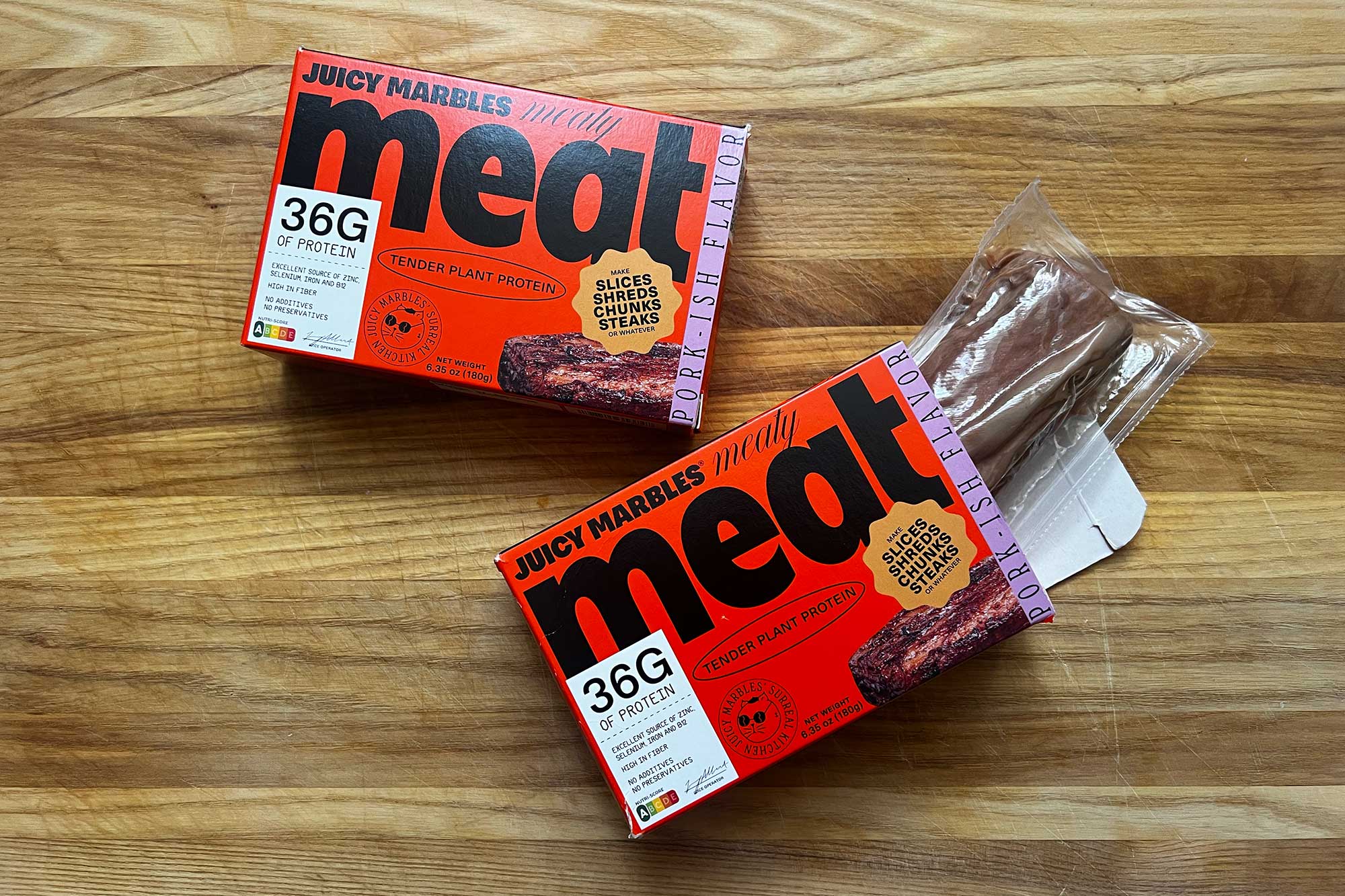Hey hungry friends, and welcome back to a fresh Cool Beans taste test! Last month, Slovenian startup Juicy Marbles—known for its beef-mimicking loins, fillets, and ribs—introduced its latest flavor, called Meaty Meat pork-ish. Cheeky name aside, this caught our attention because, unlike most ersatz piggy products that tend to take the form of bacon strips and sausage links, Juicy Marbles faux meat comes in loin-like cylinders that can be sliced, shredded, or cooked in a single piece. Given that pork is America’s third most popular animal protein after chicken and beef, this is great news. Well, as long as it’s a decent facsimile.
Obviously, we had to find out. We cut the hunks of the pinkish protein into 1½-inch-thick medallions, seasoned them with a little salt, and seared them in a lightly oiled skillet, per the package directions. We put them head-to-head against actual pork tenderloin, which we treated the same way, and also nibbled on both prepared with a quick mustard-maple marinade and a side of sautéed apples— flavors that are among pork’s best pals.
What is it, exactly?
Like Impossible’s popular faux meat, Juicy Marbles products consist primarily of soy protein. They also have natural flavorings, safflower oil, pea protein, and red beet juice for color. One 6.35-ounce serving of pork-ish delivers 36 grams of protein—about the same as traditional pork tenderloin—and 90% of the B12 vitamin vegetarians can otherwise have trouble working into their diets. (Actual pork has less than half that amount.) Currently only available on the Juicy Marbles website, a pack of four runs $40 and arrives frozen and vacuum-sealed. Ours shipped from Pennsylvania—not Slovenia.
How’s it taste?
Fresh out of the package, pork-ish presents as a decent doppelganger. It’s pink, but a little darker than pork, and has flecks of pale marbling. In the hot pan, the medallions turned a burnished brown and achieved a pleasing crispy caramelization on the outside—probably due to the fact that there’s a little bit of sugar in its nutritional profile. It didn’t act exactly like the piggy pork, which quickly goes from pink to whitish to golden, without crisping up. There’s also little, if any, shrinkage, as it cooks.

At first, the Juicy Marbles tasted a little like deli meat. If we’re generous we’d say mortadella, but it’s actually a little more like bologna, which did not put any of our testers off. Its interior was drier than the tenderloin’s, but not in a bad, overcooked way. In fact, the consistency was similar to lean brisket, in that it really wants to pull apart into shreds once you cut it open.
The bologna taste registered less as we scarfed more. It gave way to a savory, slightly sweet, offensive-to-no-one (except the meat averse) flavor that’s somewhat evocative of “the other white meat,” if not a perfect copy. What pork-ish lacked compared with the real tenderloin was a mild gaminess. We were a tad confused by this miss: Juicy Marbles’ other new cut, lamb-ish, managed to nail that pleasant funky taste—so much so that we mused that “lamb juice” must be among the faux meat’s natural flavors.
Is it fooling anyone?

As pork tenderloin? No. But that doesn’t mean it won’t work well elsewhere. Pork-ish would be right at home in tacos, a ragu, or pulled “pork” sammies, but we’d probably not eat it on its own. Tasting one of our mustard-marinated medallions along with a forkful of sautéed apples was absolutely one of our best bites. Juicy Marbles seems to know this, too, as its website is replete with recipes with places to slide in its faux fare.
Bottom line: 7.5/10
If you’re the sort of eco-minded eater who occasionally pines for something that evokes the savoriness and toothy texture of the real deal, it could be worth making a little space in your freezer for Juicy Marbles’ pork-ish as a special treat. The fact that it’s super-high in protein doesn’t hurt either. Its price, which is well over four times the cost of your average tenderloin by weight, might hold you back from cooking with it every day.

